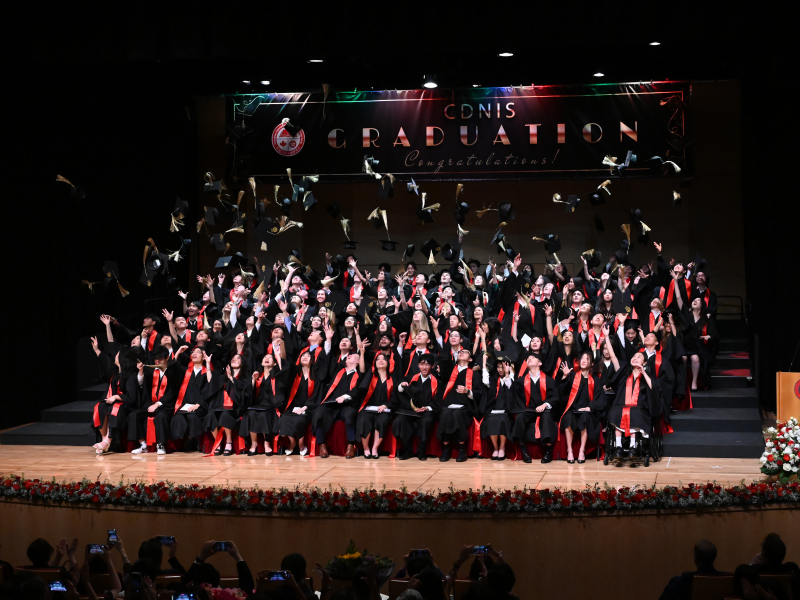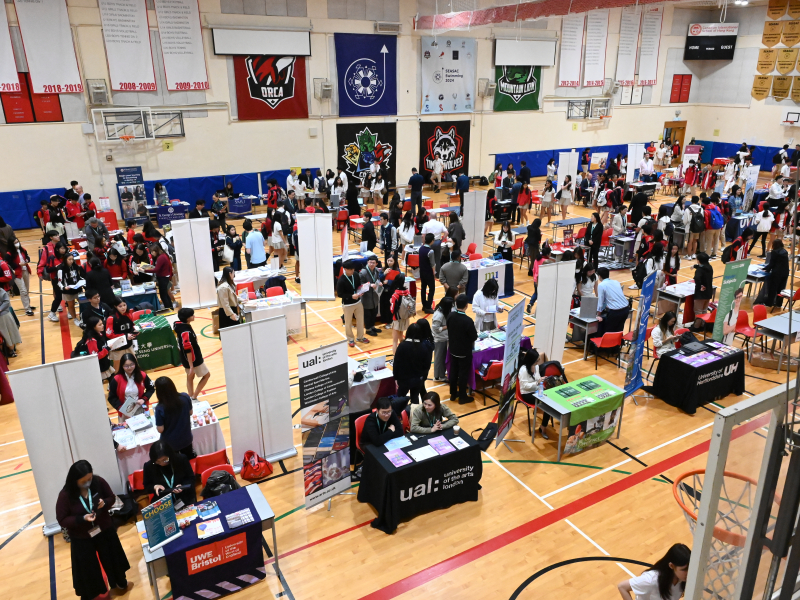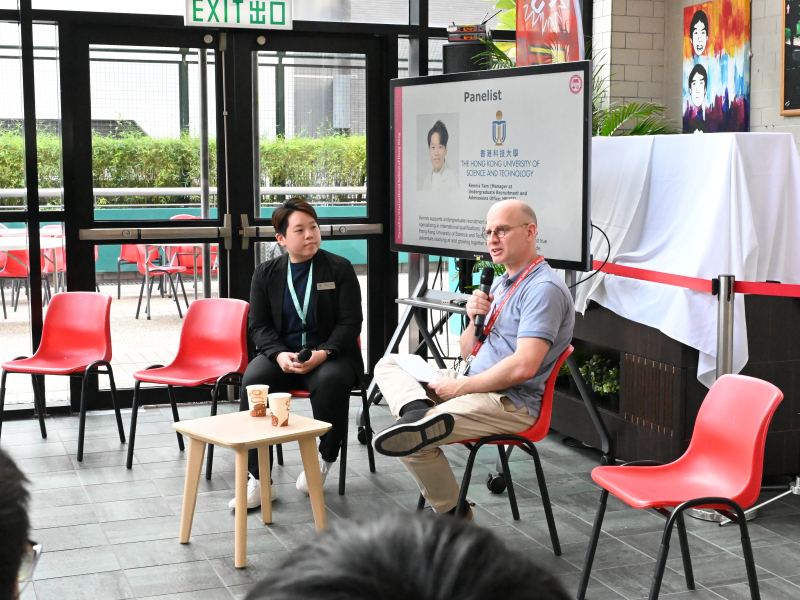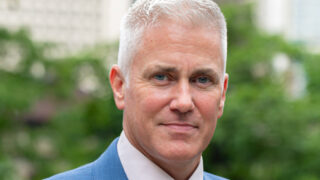When we last caught up with DR CHANTELLE JACKSON-BOOTHBY, she’d just arrived after working in schools in the US and the UK, to join the team at Canadian International School (CDNIS) Hong Kong. As Director of University Counselling, she continues to look over student support and help with university admissions. We check in and find out the latest trends and developments among students planning for tertiary education.
What’s been happening at CDNIS Hong Kong since we last spoke in 2023?
It’s great to connect with you again! Since we last spoke, the CDNIS University Counselling Team has grown from strength to strength – I am really thrilled to have the opportunity to update you.
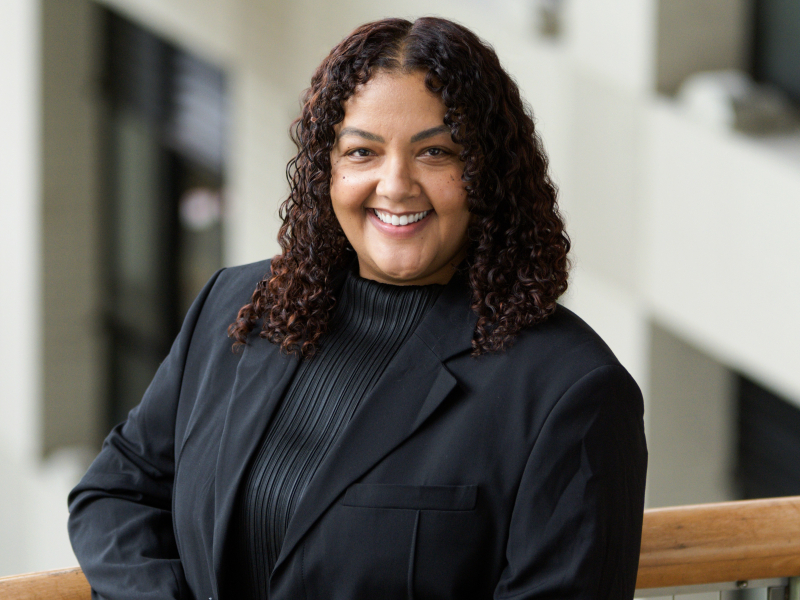
Our university counselling team remains dedicated to empowering students as they navigate their higher education journey. The team is made up of experienced counsellors with diverse backgrounds, and we offer personalised guidance tailored to each student’s unique interests, strengths and aspirations.
More specifically, the CDNIS University Counselling Team is composed of four dedicated university counsellors who work with high school students in one-on-one counselling sessions, group workshops, and academic classes.
When we last spoke, I mentioned the unique nature of our team, in that we are split in terms of our specialisation. In addition to my role as Director of University Counselling at CDNIS, I continue to support students who are primarily focused on highly selective US universities. My colleague Mr Robert Aldridge specialises in UK university admissions, Mr Jaren Folden works with students who are targeting Canadian universities, and we have recently added a fourth university counsellor, Mr Martin Kwok.
Tell us a bit about this newest member of the team.
Martin’s main focus is on Hong Kong universities. He also supports families who prefer to be advised in Cantonese or Mandarin. Having a university counsellor who is able to communicate with CDNIS families in Chinese greatly enhances the support available to our diverse community. This service allows for clearer communication, ensuring that CDNIS families have a comprehensive understanding of the university admissions process. By advising in their preferred language, we foster trust and create a more inclusive environment without language barriers.
What shifts have you been seeing in university applications recently? Any clearly discernible trends?
In response to evolving job market demands and societal needs, students are showing a growing interest in fields such as healthcare, technology and environmental sciences. This is an observation that holds true for our CDNIS students as well. It’s also crucial to recognise that today’s students are being prepared for careers that don’t yet exist. As a result, equipping them for higher education and the future workforce by fostering essential soft skills has become increasingly important.
Our students continue to pursue Arts-focused programmes at university, recognising the ability to combine artistic interests with career aspirations, including specialist Arts universities as well as programmes offering a blend of the Arts with STEM, business, or other academic disciplines.
What are direct entry programmes, and what kind of interest is there in these among CDNIS students?
Direct entry programmes are academic pathways that allow students to enter a university programme without first having to complete a prerequisite course or qualification. Direct entry programmes in medicine, dentistry and law are very popular with CDNIS students. Last year, students in the Class of 2024 received 17 undergraduate medical and dental offers, and six undergraduate law offers.
What about dual BA programmes? Are these popular among CDNIS graduates for the kind of international education they provide?
Yes, dual BA programmes continue to be popular with our students. In fact, one of our recent graduates is currently completing her first year at Columbia University after having completed her first two years at Sciences Po.
Students at CDNIS are increasingly interested in dual degree programmes between local universities and universities outside of Hong Kong. This year, we have a small number of students who have targeted dual degree programmes because of the opportunity they provide to gain a broader and more specialised skill set that can open up a diverse array of career opportunities.
You were relatively new to Hong Kong when we last chatted. What have you been enjoying about living here?
Hong Kong continues to delight me – from the vibrant energy and diversity of the city, to the breathtaking views, it has a unique spirit. What stands out most is the warmth of the people amidst the hustle and bustle.
I’ve enjoyed exploring, because exploring Hong Kong is like unwrapping a beautifully complex gift. Every corner tells its own story and offers a new adventure.
What are you looking forward to for the remainder of 2025?
I’m always excited about introducing students and their families to the university application process. University counselling work is obviously cyclical in nature, and at the beginning of each cycle we have the opportunity to engage with a new group of students. And it is this engagement that helps establish trust, setting the stage for continued university counselling support throughout the year.
Students in the Class of 2025 continue to receive strong university offers and we are starting to work with our Grade 11 students and their families on application preparation. At the same time, the university counsellors are meeting one-on one with Grade 10 students to support them in their IB course selection for the diploma programme – and Grade 9 students are being introduced to our new university research platform at CDNIS Hong Kong. It’s all very exciting.
Canadian International School (CDNIS) Hong Kong is at 36 Nam Long Shan Road, Aberdeen.
2525 7088 | cdnis.edu.hk
This article first appeared in the March 2025 edition of Expat Living. You can purchase the latest issue or subscribe so you never miss a copy!

